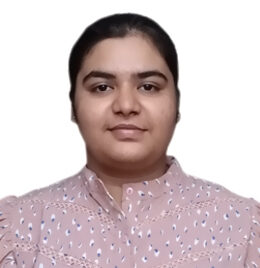In the heart of India’s northeast, Manipur, a state known for its rich cultural heritage and, unfortunately, recent turbulent times, the pursuit of justice remains a cornerstone of society. While the state has its own High Court, the Supreme Court of India plays a crucial role in ensuring the rule of law prevails.
It’s easy to think of courts as distant institutions, but at their core are people – judges who carry immense responsibility. Let’s take a moment to understand the role of the Supreme Court concerning Manipur and humanize the idea of “judges.”
The Supreme Court’s Reach: Beyond Delhi’s Walls
The Supreme Court’s influence extends beyond its physical location in Delhi, as its decisions and authority affect all parts of India, including Manipur. It serves as the ultimate legal authority. So, if there’s a legal dispute in Manipur involving a significant legal question, or if someone believes they haven’t received justice in the lower courts, they can, under certain conditions, take their case to the Supreme Court.
This can involve situations where a Manipur citizen feels their fundamental rights, such as the right to equality or freedom of speech, have been violated. It also includes cases dealing with the interpretation of the Indian Constitution, which is the country’s highest law, legal conflicts between Manipur and another state, and appeals against decisions made by the Manipur High Court.
The Supreme Court and Manipur’s Challenges
Manipur, like many states, has its own distinct challenges, and recently it has faced social unrest and violence. In these circumstances, the judiciary, including the Supreme Court, takes on an even more crucial role. The courts are called upon to uphold the rule of law, ensuring equality before the law for everyone.
They also protect the fundamental rights of all citizens, with a focus on safeguarding the vulnerable and marginalized, and they ensure accountability by holding individuals responsible for crimes or legal violations. The Supreme Court plays a particularly important role in making certain that the response to these challenges aligns with the Constitution and the principles of justice.
Access to Justice: Bridging the Gap
Even though the Supreme Court holds the highest position in the judicial system, it’s important to consider how people in Manipur can actually gain access to justice.
This involves several factors: first, people need to be aware of their legal rights and how to seek help; second, courts must be accessible, both in terms of physical location and ease of navigating language and procedures; and third, because legal services can be costly, efforts are necessary to ensure that everyone, regardless of their financial status, can obtain the legal assistance they require.
Through its various initiatives and rulings, the Supreme Court works to improve access to justice for all citizens, including those in Manipur.
The pursuit of justice is a continuous endeavor that requires the combined efforts of the judiciary, the government, lawyers, and the general public. The Supreme Court, with its authority and expertise, plays a key role in guiding this process and maintaining fairness within the legal system.
In the context of Manipur, the role of the Supreme Court is particularly significant. It acts as a beacon of hope and a guardian of the Constitution, striving to uphold the principles of fairness, equality, and the rule of law in a state that has faced significant adversity.
By understanding the role of the Supreme Court and appreciating the human side of the judiciary, we can gain a deeper understanding of the importance of justice in our society.
About Author

Akshita Garg is a career driven law student at Campus Law Centre, University of Delhi, blending analytical precision with a passion for justice. With a foundation in Botany from Hansraj College, she brings a unique perspective to legal research and advocacy. Her experience spans legal drafting, research, and social impact initiatives, gained through internships at leading firms and NGOs. Known for her critical thinking and effective communication, she is committed to navigating the complexities of law to drive meaningful change.
